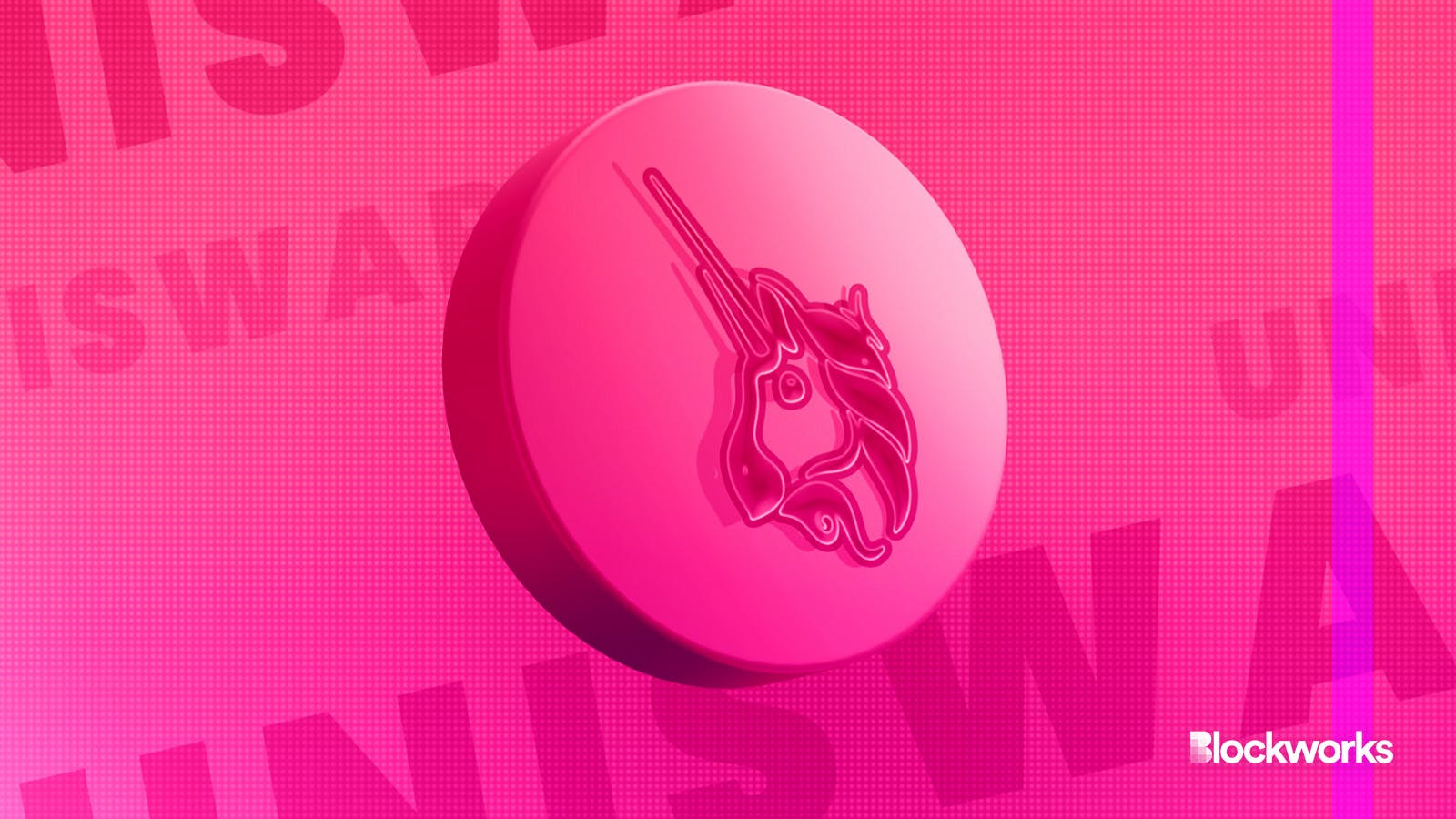Uniswap DAO to weigh giving ‘underrepresented’ delegates more voting power
The proposal’s author called the voting power boost for active delegates an experiment in accountability for DAOs

Satheesh Sankaran/Shutterstock modified by Blockworks
A group of seven Uniswap DAO delegates who vote over 80% of the time — but possess marginal voting power — moved closer to receiving a voting power boost after a Wednesday temperature check vote.
The proposal would split 10 million uniswap, worth around $60 million at current prices, among “underrepresented” DAO delegates with less than 2.5 million uniswap. A DAO borne out of Georgia Tech’s blockchain club and the trading firm Wintermute were the two most popular delegates in the temp check.
The proposal now faces an on-chain vote before delegates would receive uniswap (UNI) from the DAO’s treasury. To be clear, the UNI would not be funds the delegates could spend or trade, but would bump up their share of voting power on future governance matters.
As with many DAOs, Uniswap’s DAO allows token holders to either vote themselves or delegate their voting power to another wallet address. There are more than 30 delegates with at least 2.5 million delegated votes, the line the proposal sets for “underrepresented.” Variant Fund general partner Jesse Walden is the second-largest delegate with around 8 million tokens.
Read more: Uniswap’s DAO poised to try its hand at venture capital
The governance service provider StableLab authored the delegation proposal and would also receive governance tokens were it to pass. StableLab also proposed and passed a delegation incentive program this week at Rari DAO.
Doo Wan Nam, chief operating officer of StableLab, told Blockworks that the experiment in recognition for active delegates is important for accountability, as delegates who failed to maintain 80% participation would lose the extra votes.
Wan Nam acknowledged the difficulty in subjectively analyzing whether an active voter is a good voter, though. Are delegates voting flippantly or deeply researching both sides of a proposal?
“We have to start with something that’s objective,” Wan Nam said.
The move comes as Uniswap’s voting delegation has been slowly consolidating. A Dune Analytics dashboard shows that in 2023, the number of votes cast per governance proposal has stayed more or less constant while the number of voters participating has generally declined.
Get the news in your inbox. Explore Blockworks newsletters:
- The Breakdown: Decoding crypto and the markets. Daily.
- 0xResearch: Alpha in your inbox. Think like an analyst.






